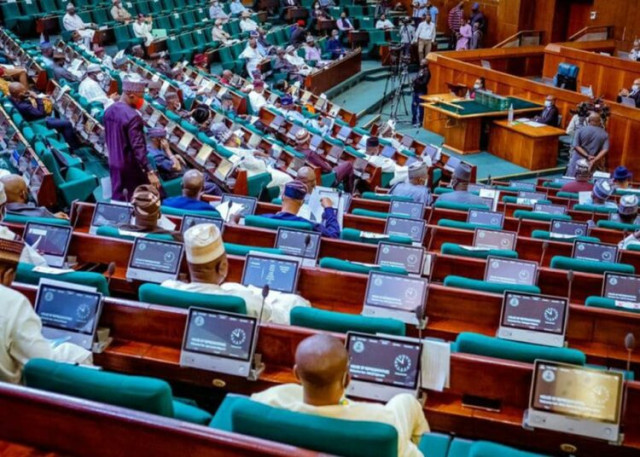Abuja, Nigeria- The House of Representatives has passed for second reading a bill seeking to amend the Electoral Act 2022 to make voting compulsory for all eligible Nigerians.
The proposed legislation, co-sponsored by Speaker Tajudeen Abbas and Hon. Daniel Asama Ago (Bassa/Jos North, Plateau State), aims to boost electoral participation, tackle voter apathy, and strengthen Nigeria’s democratic foundations.
Presenting the bill during Thursday’s plenary, Ago emphasized that democracy flourishes when citizens actively engage in electing their leaders.
He described voting not only as a right but as a civic duty essential for good governance and national stability.
“Nigeria has consistently recorded alarmingly low voter turnout rates,” Ago said. “In the 2023 general elections, fewer than 30% of registered voters cast their ballots. This trend undermines the legitimacy of elected governments and weakens democratic institutions.”
The bill proposes a legal framework to enforce mandatory voting for Nigerians aged 18 and above, including sanctions for unjustified non-compliance. However, exemptions would be allowed for valid reasons such as illness, religious objections, or residing abroad.
Additionally, the bill seeks to empower the Independent National Electoral Commission (INEC) to develop systems for tracking voter compliance and managing exemption requests, while safeguarding fundamental human rights. It also mandates increased electoral education to foster awareness about the value of voting.
Ago highlighted international precedents, citing countries like Australia, Belgium, and Brazil, where compulsory voting has yielded positive outcomes in terms of civic engagement and public accountability.
“By making voting a legal obligation, we instill in citizens a shared responsibility in governance,” he said. “Mandatory voting could also dilute the effects of vote-buying and increase electoral integrity, as a higher turnout would make it more difficult to manipulate outcomes.”
Despite broad support for the bill’s intent, it sparked critical debate on the House floor. Hon. Mark Esset (PDP, Akwa Ibom) cautioned against viewing mandatory voting as a cure-all for electoral challenges.
“We shouldn’t build on a shaky foundation,” Esset said. “Many Nigerians don’t vote because they believe their votes don’t count. If we’re going to enforce compulsory voting, we must also ensure electoral transparency and restore public confidence in the process.”
The bill now proceeds to committee stages for further deliberation and refinement. If passed into law, Nigeria would join a small group of democracies where voting is not only a right, but a civic duty with legal backing.




















